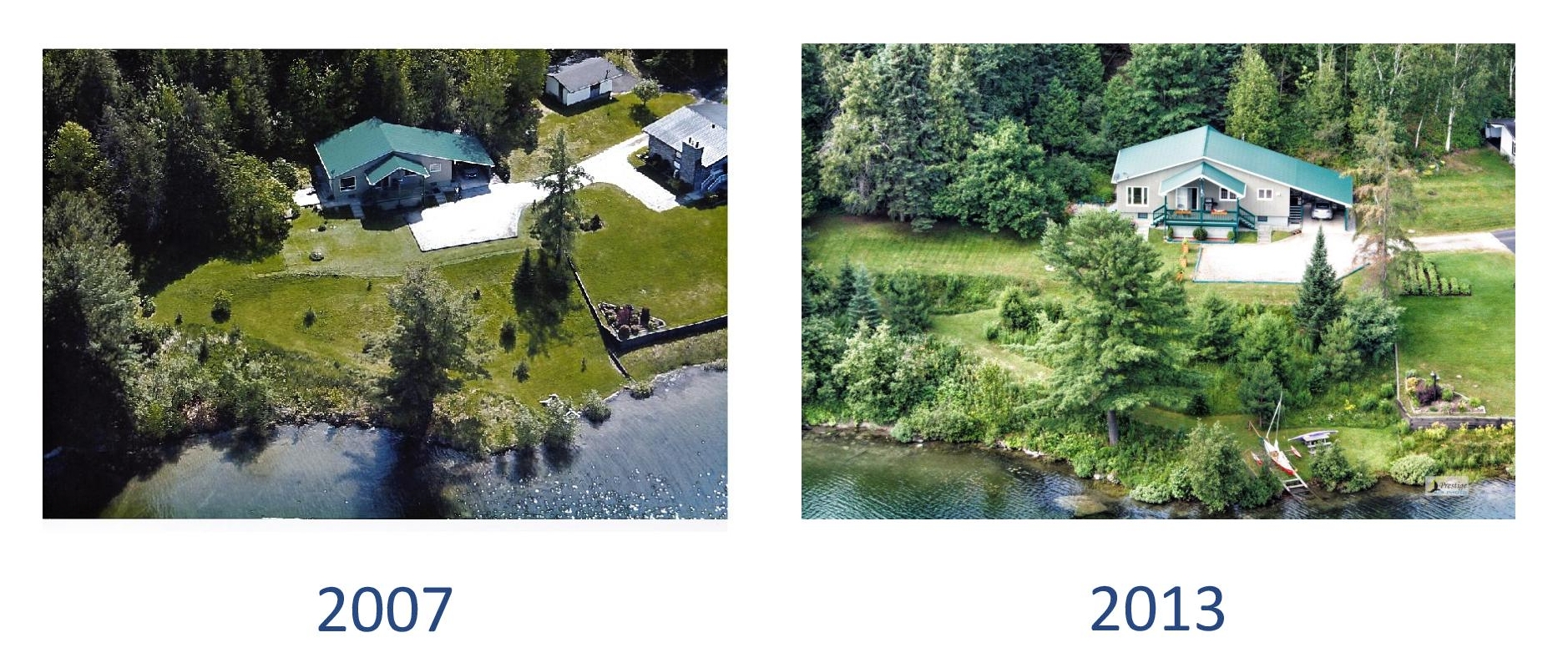RESTORATION OF YOUR SHORELINE IS EASY IF YOU BELIEVE IN IT!
Here is André Beauchemin’s cottage. See the difference!

The reasons why you should keep your shoreline natural: The-waters-edge
Please be advise that the municipalities in the Gatineau valley are applying the shoreline preservation policy and fine those who don’t respect the limit of 10 meters of NO CUTTING starting at the shoreline.
Document that all property owners received from the MRC & the municipalities of Lac-Sainte-Marie & Denholm: shoreline rule infraction_mrc
The Gatineau Valley MRC’s Shoreline Policy
(documents are mostly in french):
other version of this rule: 2009-206_rci_synthese_fr
2009-206_reglement vers. française finale
Jugement vs riverains 20 juin 2011
RCI 2009-206-1 modifiant 2009-206 dépôt
Pouvoirs municipaux et protection
SHORELINE PLANTS:
All the plants listed below are for full-light or light shade conditions ; 3 to 6 hours of direct sunlight exposure per day
Recommended plants for shoreline naturalization:
HERBACEOUS :
Larger Blue Flag (Iris Versicolor)
Quebec’s emblem flower since 1999
Large perennial plant that emerges from a rhizome Purple flowers from mid-June to mid-July
Black-Eyed Susan (Rudbeckia Hirta)
Large yellow flowers 5 to 10 cm diameter
Slug resistent
Untouched by deer
Purple Joe-Pye Weed (Eupatorium Maculatum)
Pink corymb flowers Abundant producer of nectar and seeds for birds. Grows best on moist soils
Bluejoint (Calamagrostis Canadensis)
Rapid growth
Foliage persistent even when dried out
Grows best on wet or temporarily flooded soils
SHRUBS :
Common Winterberry (Ilex Verticillata)
Dense dark green foliage
White flowers in June
Red berries in winter serving as food source for birds
Sweet Gale (Myrica Gale)
Large bush with curved branches
Withstands flooding, grows best on acidic soil but also in poor and wet soils
American Elder (Sambucus Canadensis)
Forms bushes or hedges Large white flowers in summer
Black eatable fruits in fall are attractive to birds
Red-osier Dogwood (Cornus Stolonifera)
Rapid growth
White or bluish fruits
Tolerates compacted soils, an excellent plant for bank stabilisation of abrupt slope
Other Pamphlets Concerning Shoreline Plants:
LIVING AT THE WATER’S EDGE :
A Cottager’s Guide to a Healthy Waterfront
This is another interesting guide. It provides information on how to preserve the true nature of a shoreline and how to restore an altered shoreline if so needed. This document was produced by Fisheries and Oceans Canada in association with Cottage Life. To view the guide, click here (1.6 MB).
More documents in the french section (click French)
Watershed_booklet FULL 2011 with covers_1
